
Ilaria Guidantoni, journalist, writer and member of the Scientific Council of LIBREXPRESSION, has been working and staying regularly for many years in Tunis, where she is actually, testifies for LIBEX of the uprising situation that started at the end of December 2017 in Tunisia.
Cartoons from Tawfiq Omrane
- Work, Freedom, Dignity
- Shall we have to light a new candle
- The State declare war on corruption
Tunisia in boiling a few months before the municipal elections. This time perhaps it is really a revolt of the bread: demonstrations against the dear life, inflation that grows, the dinar that depreciates, with a change to today that exceeds 2.9 euros. After the revolt – I would not call it a revolution by historical rigor – in January 2011, the country has gained freedom of expression, of printing with some dark areas, perhaps due above all to the comprehensible immaturity of the local press and to a sudden and uncontrollable desire for provocation, a new and truly democratic Constitution and a series of laws that guarantee, at least on paper, equal conditions for women. A recovery of the post-independence years, of the legacy of Bourguiba, the great father (master) of the country, with some specifics in the legislation that Italy itself can look at as a model.
But he lost on the field of work, not so much and not only from a strictly economic and financial point of view. It is on this ground, which was also the basis of the initial success of the religious party during the first free elections of October 23, 2011, which Ennahđha lost credibility. The failure was not of a religious nature, beyond the alarmism and the whole discussion on Article 1 of the Constitution. In fact, the same civil rights are exercised really only in that arena which is the world of work that implies one of the three assets of revolutionary slogans: dignity, or equal accessibility to everyone in the labor market, regardless of being a man or woman and from political convictions. In this sense, working becomes the horizon of the daily exercise of democracy, especially for young people to whom it gives a dimension of planning and a perspective of the future.
Today, it seems to me that the country is more concerned with the international image than its own people: the hard line with the introduction of new taxes and therefore the rise in prices is due at least in part to the promise of economic reforms offered as counterpart of the European Monetary Fund’s loan. Correct certainly, but the reforms should be carried out for the people and not against the people, for the real country, not for its public image. For months now a growing malaise was spreading with a more and more gap between bourgeoisie and intellectuals on the one hand, “People” on the other, with a stronger and more disconcerting separation than in Europe. In the south, not everyone suffers the crisis because the system of privileges is strong. Thus, appeared the movement “What are we waiting?” that has inflamed some suburbs of the capital, even if the events were concentrated on avenue Bourguiba, the main artery of Tunis, symbol of its history and the south, the interior, the centers rural districts, as always happens, from the revolt of Gafsa, mining basin, of 2008 to the first outbreaks of 2010 in Sidi Bouzid. The country is once again split and what is sad and get you emotionally involved is that in certain districts of the northern suburbs of the capital, with a decline in life and vitality in the evening and the absence of the police (concentrated in the “hot” neighborhoods), everything flows as if nothing had happened.
From the point of view of communication, it is interesting to note that on the Italian front, Rai News 24 gave a wide but very emphatic information, while on the Internet and also on Facebook, little or nothing appeared. The very friends of Tunis, always very active, have not commented on the events. One wonders why. What is known, but only impressions, which come with the echo of the media, is the anger that snakes, many say related to small delinquency that takes advantage of the unrest.
What sense can have the attempt to burn a mosque in Djerba in these days and with this type of government (the tenth in 7 years)? What can it bear as result? There are more assaults, acts of vandalism, especially nocturnal, “against” in general, than demonstrations and initiatives. This makes us think of political, trade union manipulation, the desire to destroy rather than to build, to change the course of things. In this sense, the country seems to implode and ultimately surrender. There has been a block of imports that is leading to closure, perhaps understandable. But what about exports? It’s time to focus on this activity. Europe, in its turn, would throw itself in the hands of the Tunisian products at competitive prices. Let’s take a very mundane example but to give an idea: a pomegranate in Italy costs at least two euros a piece, in Tunisia twenty cents. On the Italian market at one euro it would be advantageous for both countries. I know it’s a simplistic speech but it makes the idea of ”an impasse” from which one does not even try to go out. Tunisia, it is true, is not a producer country in the strong sense of the term but has oil of very precious quality at this moment on the northern shore of the Mediterranean; dates: in recent years it has been the first fruit exporting country in Indonesia, where there is the largest Muslim community in the world which, for example, in the month of Ramadan strongly raises the demand; phosphates for agriculture; crafts, in particular textiles; and above all tourism in conditions of great attractiveness for the European market, which in recent years has not received the right incentives and investments.
Missed opportunities in recent years, beyond many proclamations and a general resignation that led to complain rather than react by rolling up their sleeves. This is what worries me: the climate compared to 2011 is very different and it is difficult to read the future too. The lack of clarity of information is an indication, since, for instance it was not clear whether there was a curfew or not. It is evident that it is not a particular to ignore. There is a lot of fear on the part of those who govern, this is evident and a lot of anger is spreading and you cannot imagine it to be constructive.


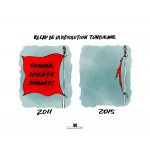
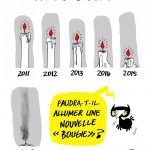
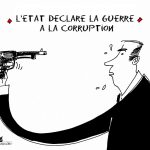

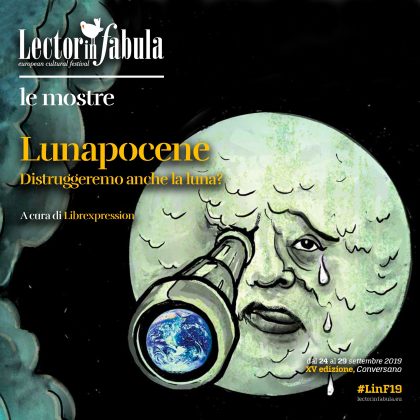
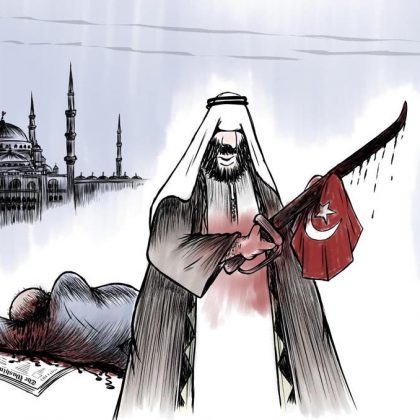

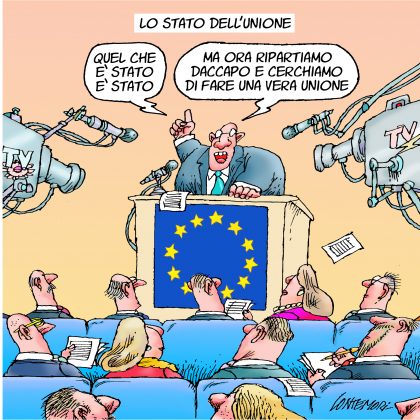

Comments
Emiko Issac
I’m quite certain I’ll learn lots of new stuff right https://bzp65.com/
Erline Huska
With thanks! Valuable information! http://casinossir.com